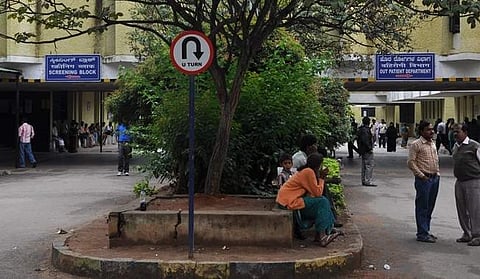

With the increase in the types and number of addictions among the youth across the country, substance abuse has also gained more attention. Technology addiction such as addiction to gaming, watching content on the internet has become relevant among young people across the world. Teenage substance abuse can have long-term cognitive and behavioral effects since the teen brain is still developing. In order to curb this, to counsel, guide and help not just youngsters but people who want to quit substance abuse, the National Institute of Mental Health and Neuro Sciences (NIMHANS) has opened a clinic at NIMHANS Centre for Well Being (NCWB) to show them the way to healthy living.
The Substance Abuse-Free Existence (SAFE) clinic, with the philosophy 'Staying substance free - a way of living', will offer screening for substance use, medical services, psycho-education, lifestyle modification, skill-building workshops, support for individuals who have a substance user in the family, and more.
Speaking to TNIE, Dr Prasanthi Nattala, Additional Professor, Department of Nursing and Nursing Consultant to the Centre for Addiction Medicine, NIMHANS, said, “These days the use of addictive substances has become a major risk factor for many illnesses, including mental illnesses, as well as non-communicable diseases involving almost every system in the body. The net result is that health is adversely impacted as a whole because of the well-recognised connection between body and mind."
Elaborating further, Dr Nattala said, “The disorders caused by the use of addictive substances are included in the International Classification of Diseases 10th edition (ICD-10). Many times people use substances to cope with problems or deal with stress, which in turn only compounds the stress because substances never solve problems. The person uses substances to forget problems, and the problems in turn worsen the use, and it becomes a vicious cycle. This way, the use of addictive substances have become a major risk factor for suicide (in the context of the focus of the theme for World Mental Health Day 2019 – Suicide Prevention)”.
Common reasons of drug abuse include:
- Curiosity
- Peer pressure
- Stress
- Emotional struggles
- A desire to escape
“Primary prevention is the key,” Dr Nattala insisted. “The basic approach which has proved most cost-effective is to prevent, rather than treat, diseases. Thus, the approach of the SAFE clinic is to raise health awareness about addictive substance use and how it damages health, safety and life of individuals and families. We aim to help people adopt healthier lifestyles because addictive substance use is a lifestyle issue. We also conduct detailed assessments time to time so that we structure our health education programmes and workshops according to the felt needs of the target audience”. The services are provided by a team of four: Dr Nattala, Dr Pratima Murthy, Professor and HoD of Psychiatry, Centre for Addiction Medicine, Dr Prabhath Chand, Professor of Psychiatry and Officer In-charge, Center for Addiction Medicine and Padmavathy D, Nursing Officer, NIMHANS Center for Well Being.
The SAFE Clinic functions at the NIMHANS Center for Well Being, 1/B, 9th Main, 1st stage, 1st Phase, BTM Layout, Bengaluru – 560076. The clinic runs every Thursday from 2 pm to 4.30 pm. To contact, call 94808 29670 or 080-26685948.
